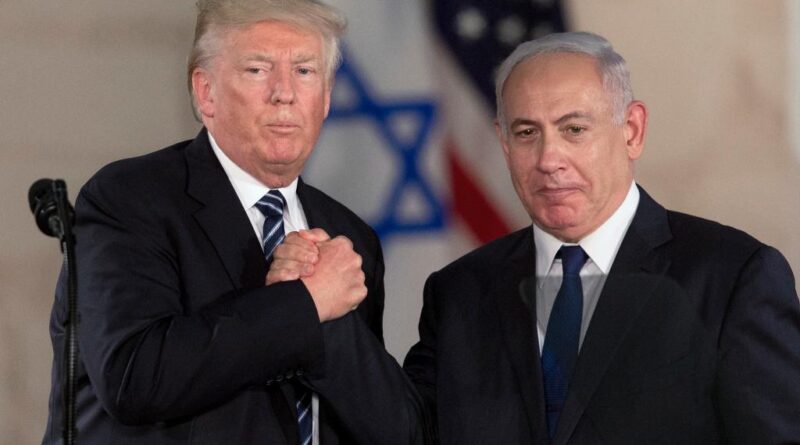It’s Time to End Hamas and Secure the Safe Return of Our Hostages

Since October 7, 2023, the rallying cry of the families of hostages in Israel has been “Bring them home.”
However, in light of Hamas’s horrific actions, which included the murder of 1,200 individuals, 46 of whom were Americans, and the abduction of 254 people, among them 12 Americans, perhaps a more fitting slogan would be: “Give them back. Now.”
Numerous opportunities have been squandered since that tragic day.
For instance, on October 8, Joe Biden could have reached out to governments in Qatar, Iran, and other rogue regimes to pressure Hamas into releasing the hostages immediately.
But that didn’t happen.
Given the leverage the United States holds in the region, a firm stance directed at Qatar, Iran, and Turkey could have addressed this crisis long ago.
Instead, it has been the incoming Trump administration that has finally brokered a deal.
This moment is bittersweet.
On one hand, there is a sense of relief for everyone—not counting Hamas and their supporters in the West—at the prospect of the remaining hostages being freed.
These individuals—men, women, and infants—are innocent victims who have spent the last 15 months trapped in a nightmare orchestrated by Hamas.
On the flip side, this agreement entails the release of Palestinian prisoners, including those convicted of murder.
In the initial exchange, nine sick and wounded hostages will be swapped for 110 Palestinian inmates serving life sentences.
Just consider the implications of that.
An Israeli baby could be traded for a dozen adult murderers.
This reality is incredibly hard for the Israeli populace to accept, especially when one recalls that a similar exchange previously led to the release of Yahya Sinwar, who later orchestrated the events of October 7th.
Moreover, Biden has attempted to worsen the situation by asserting that this deal mirrors one he had arranged in May.
What he overlooks is the vital groundwork that the IDF has accomplished over the past eight months.
This includes significantly degrading Hamas’s capabilities in Gaza.
If a ceasefire and hostage exchange had occurred last May, the IDF would not have been able to pursue its operations, ultimately capturing and eliminating Sinwar and crippling Hamas as it stands today.
Those months were not in vain.
However, the true challenge for the Trump administration lies in the next phase of negotiations.
It may come as a surprise to some that Hamas isn’t a reliable negotiating partner.
While this initial agreement may hold, the likelihood that Hamas will adhere to subsequent negotiations seems unlikely.
In their perverse manner, Hamas’s leaders understand that retaining even the remains of Israeli and American captives is crucial for their survival.
What Israel has consented to is merely a halt in hostilities, not an end to the conflict.
And rightly so.
As I’ve stated before, it’s pointless to extinguish only 90% of a fire.
The entire blaze must be put out.
It’s the same with Hamas.
Their organization must be entirely dismantled, ensuring they cannot regain control of Gaza.
Like the Nazis, Hamas and its ideology must be thoroughly eradicated.
They must be defeated and made to comprehend their defeat.
To this end, the Israelis will understandably maintain their presence along the Philadelphi corridor, which borders Gaza and Egypt.
If the IDF were to withdraw, it would only be a matter of time before terrorist groups and their regional allies began resupplying Gaza through Egyptian tunnels.
The upcoming test lies in how the Trump administration can reassure Israel that, despite the unpleasant aspects of this deal, America will provide support in future stages.
Several measures can be undertaken by Team Trump.
One action could be to lift the suspension of specific weapons and components that the Biden administration halted in an attempt to push Israel towards an agreement.
The second—and far more crucial—step involves the Trump administration taking the initiative that the Biden administration failed to execute.
That is, exert pressure not on America’s closest ally in the region, but on its adversaries.
Foremost among these adversaries is the Iranian regime.
The primary goal of American policy in the region must be to thwart the Ayatollahs from acquiring nuclear weapons.
While Tehran continues its pursuits, if Trump can reassure Israel that they will have American support should they need to act against Iran’s nuclear ambitions, it would significantly bolster the agreement.
The second challenge is more complex.
This includes addressing the governments of Turkey and, more crucially, Qatar.
Trump’s Middle East envoy, Steve Witkoff, recently asserted during an interview on Fox News that “God’s work” was being accomplished at the negotiating table in Doha.
He indicated that this effort involved numerous parties, including the Prime Minister of Qatar, Sheikh Mohammed.
With respect to Witkoff in his sensitive role, that assertion is fundamentally misguided.
If someone financially supports those who have harmed your citizens and subsequently assists in the release of some hostages, it isn’t “God’s work.”
It is akin to the work of the devil.
At the very least, it embodies treachery.
Qatar’s financial backing of Hamas and the Muslim Brotherhood is bound to be remembered as grimly as Saudi Arabia’s involvement in the ideologies that led to 9/11.
Moreover, Qatar’s ability to fund not only America’s enemies but also to undermine American institutions (including universities) through its financial channels is concerning.
Regrettably, Iran, Qatar, and Turkey have consistently outmaneuvered America and the West over the years.
If this deal is to prove effective, it will require all of America’s resources to maintain pressure on those regional powers that supported Hamas and challenged Israel.
Trump’s policy of “peace through strength” will hinge on these pivotal decisions.
We must hope it endures.



